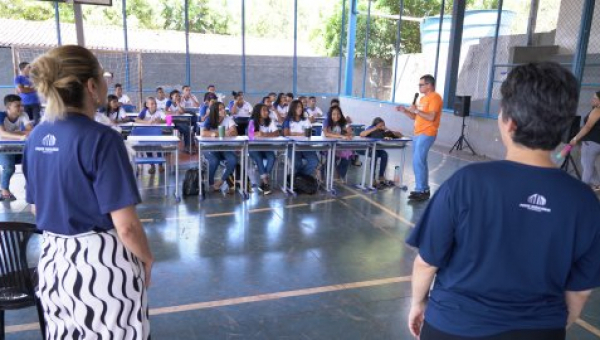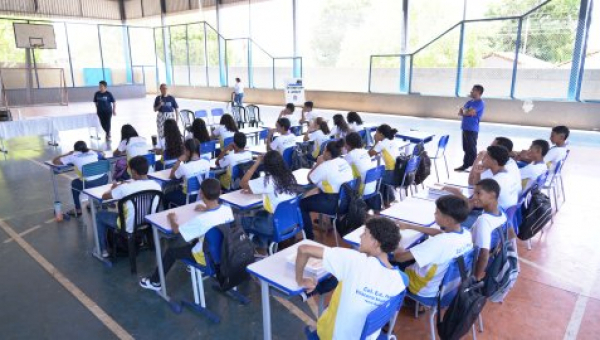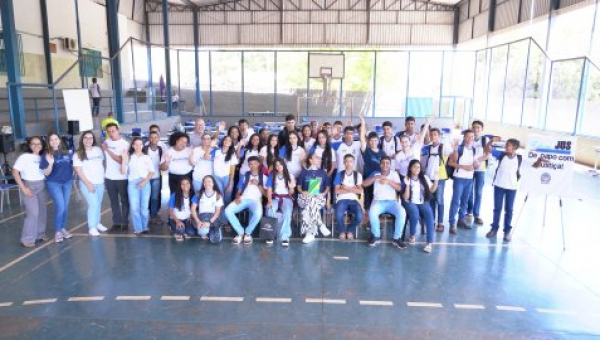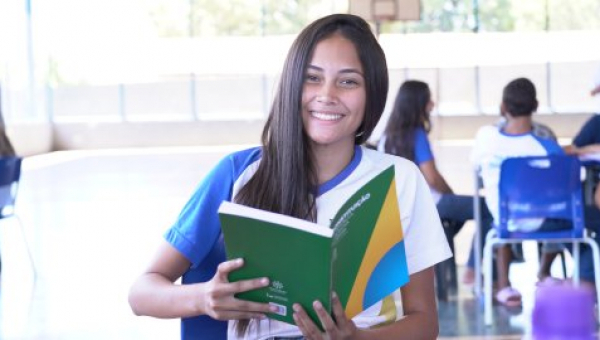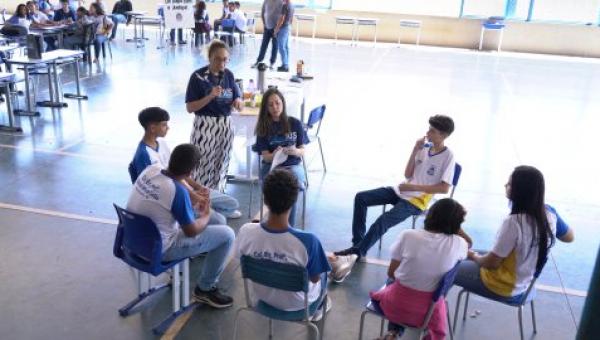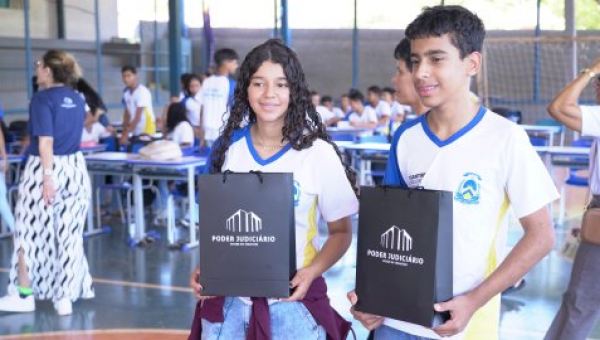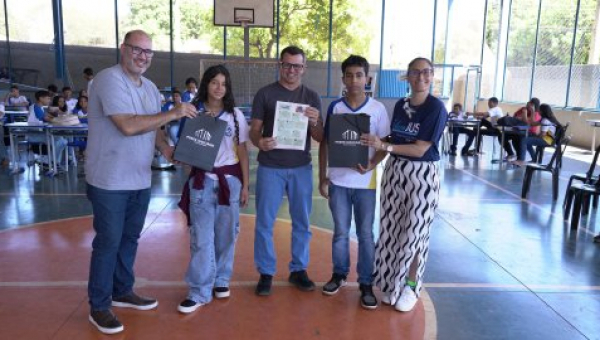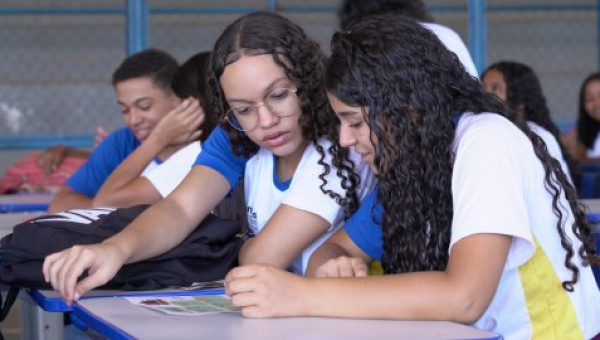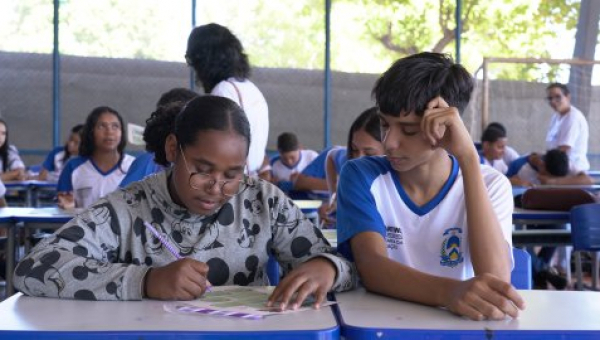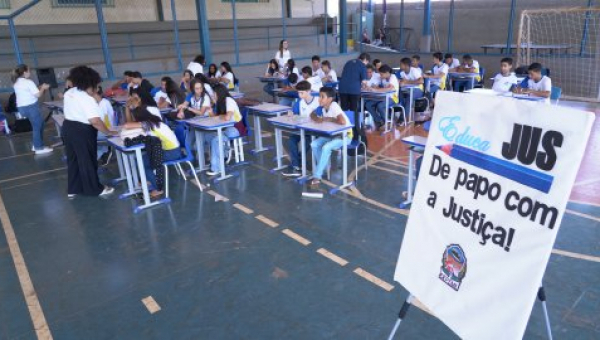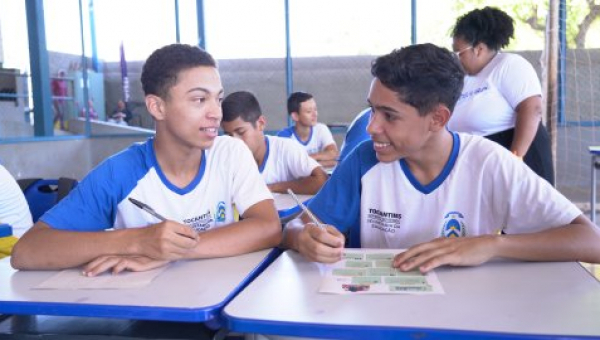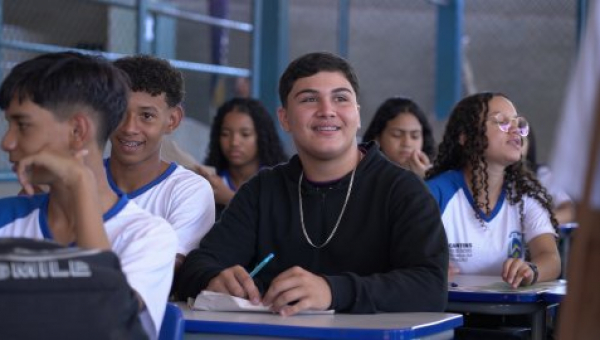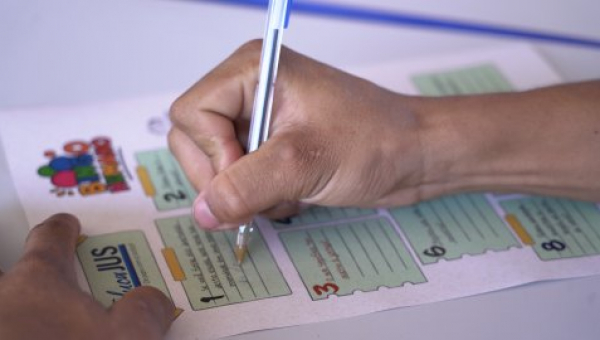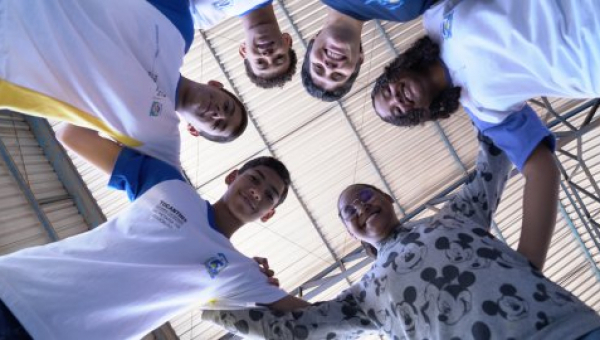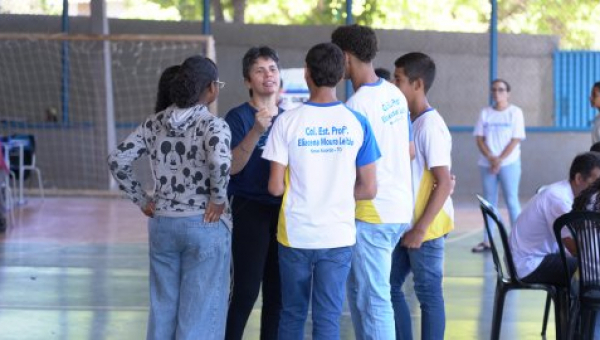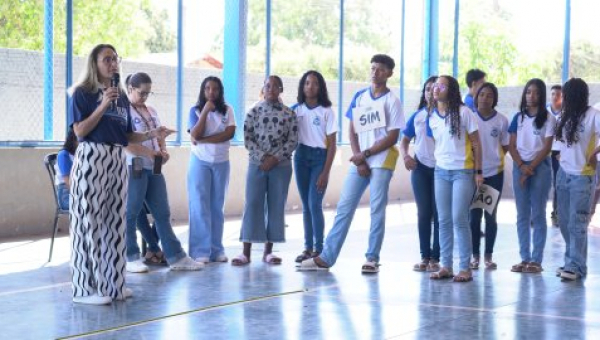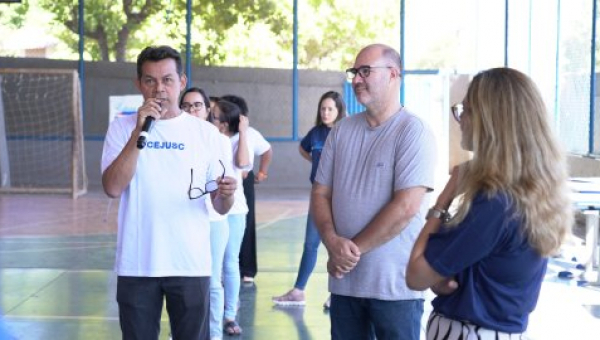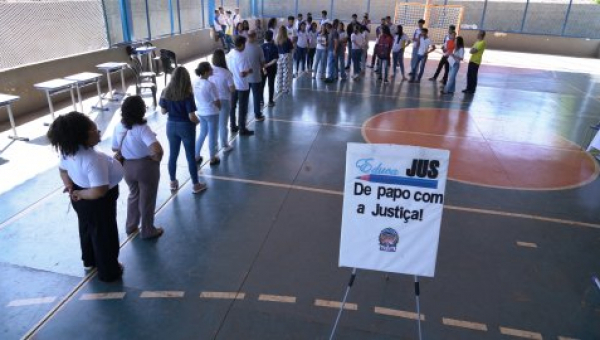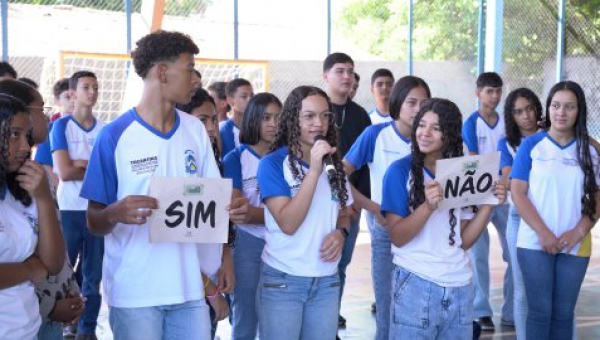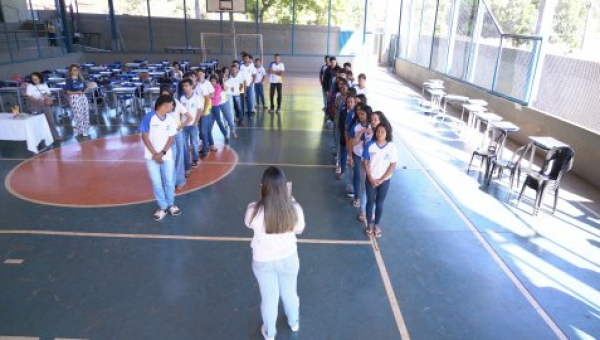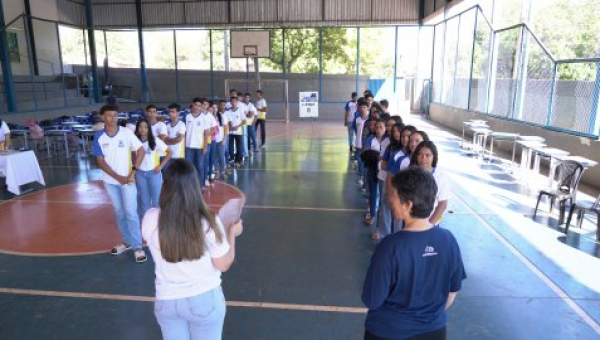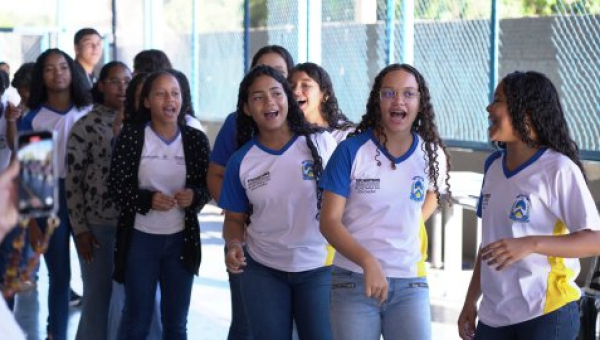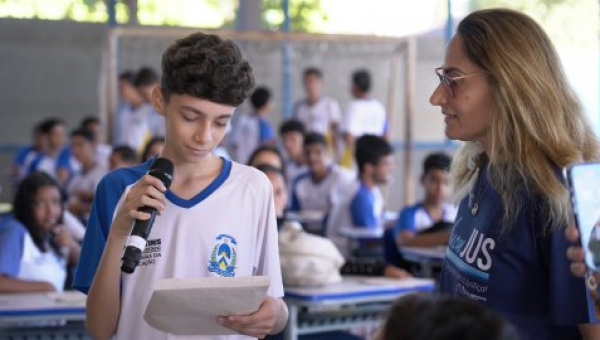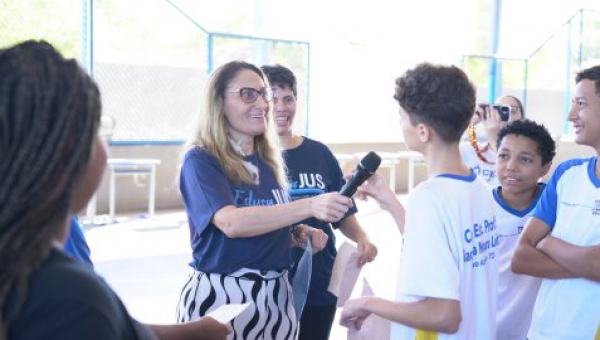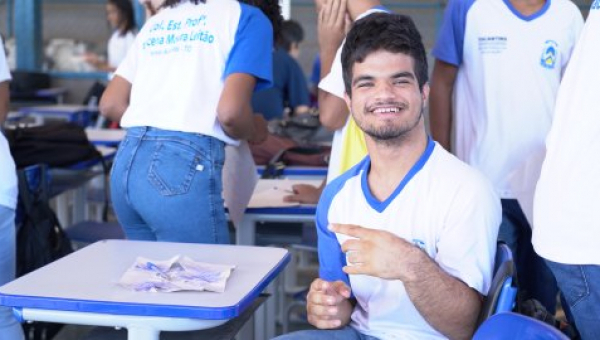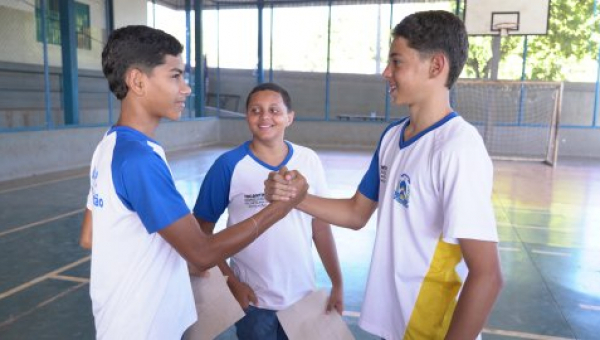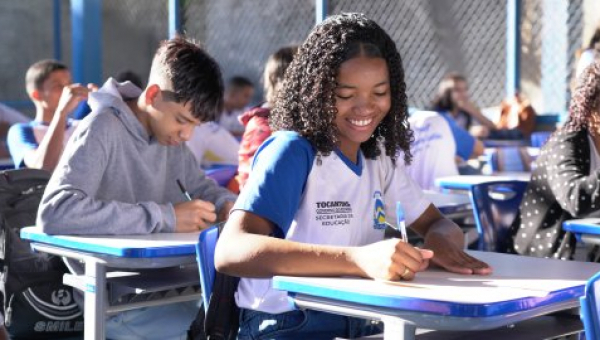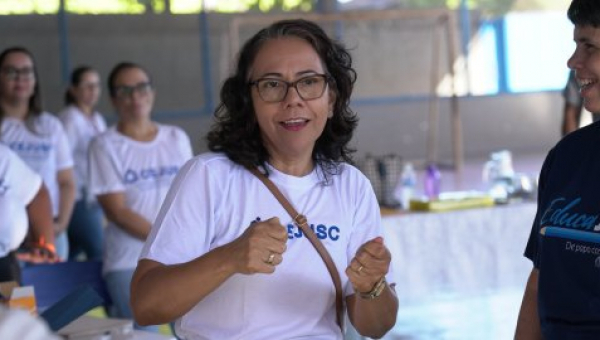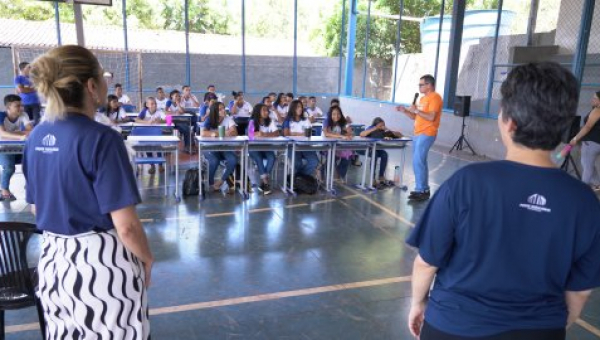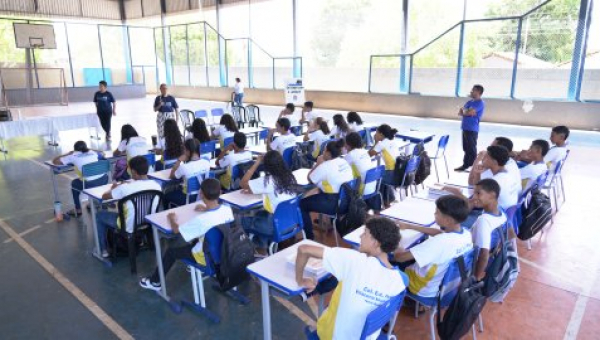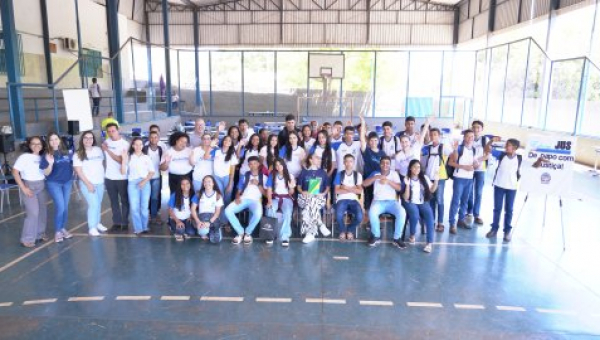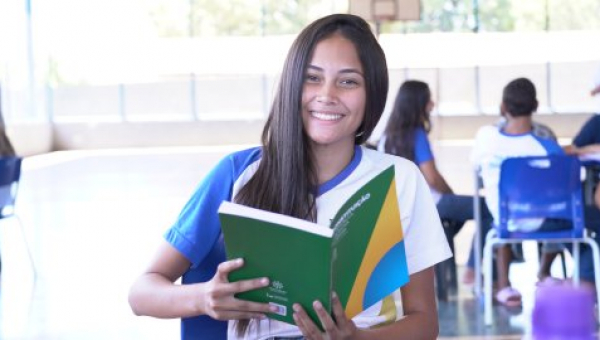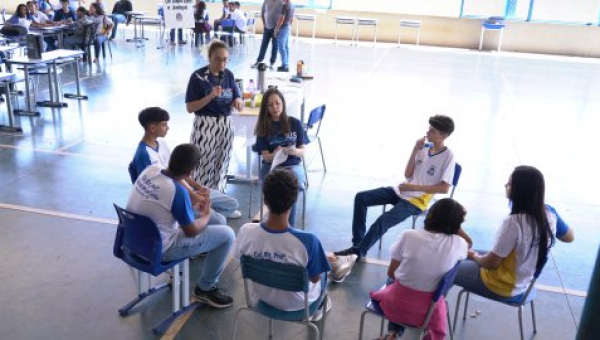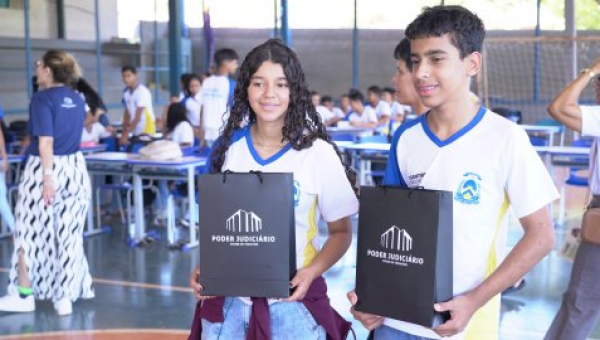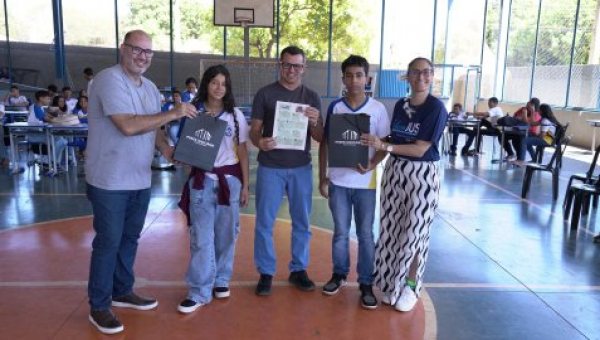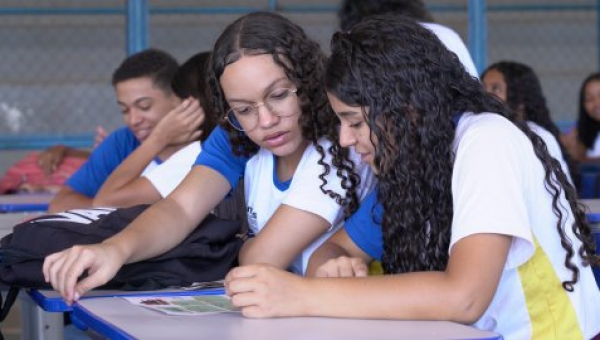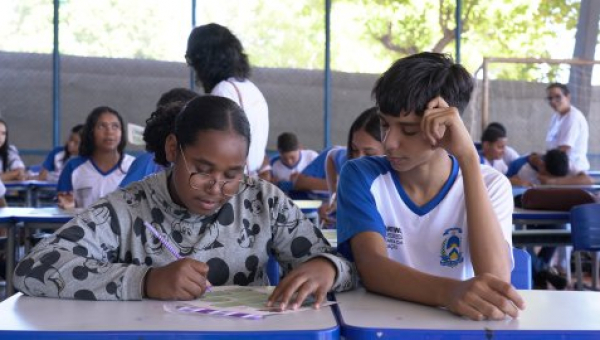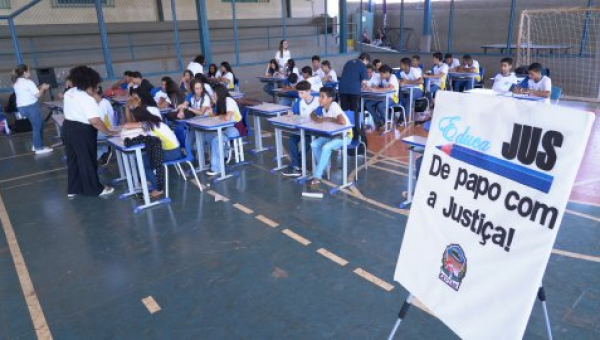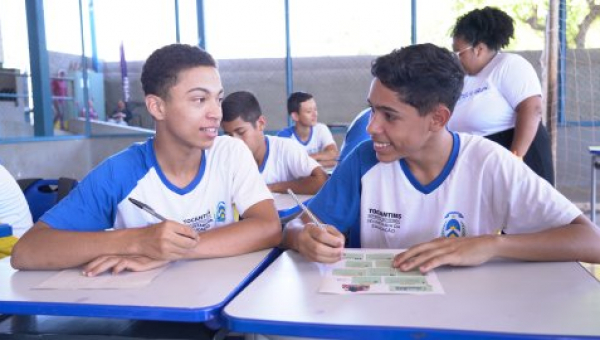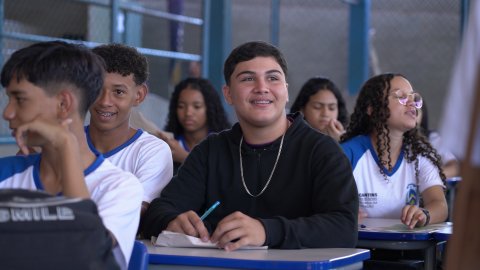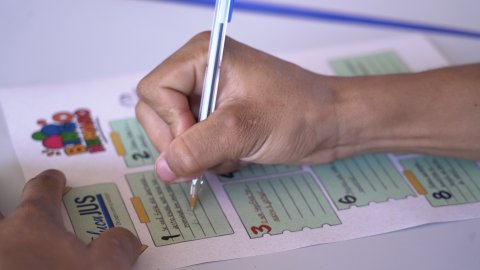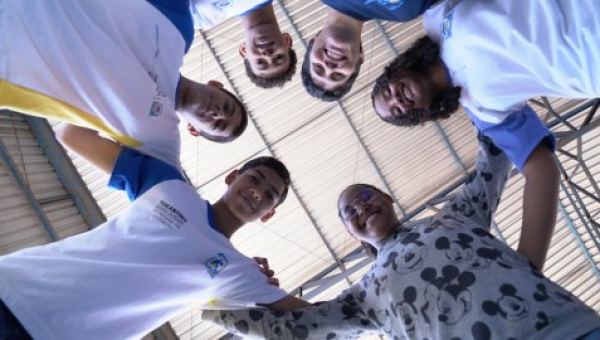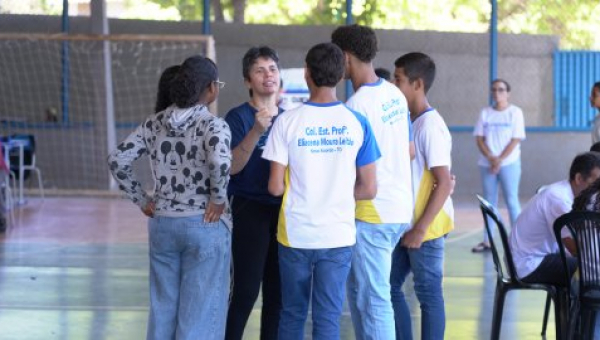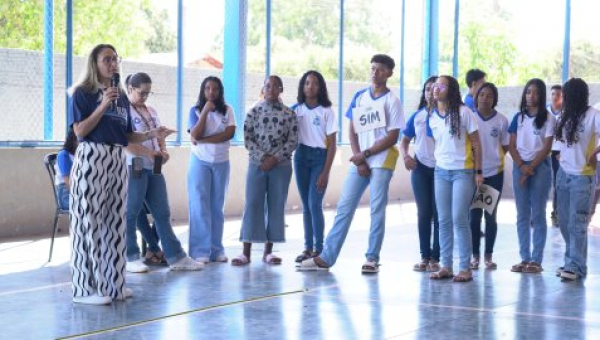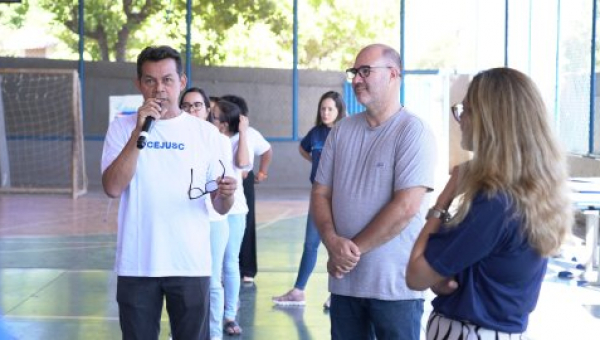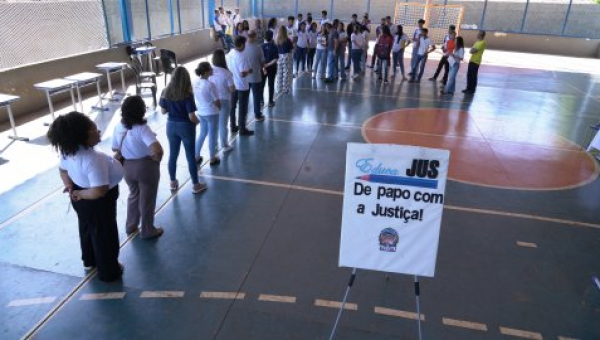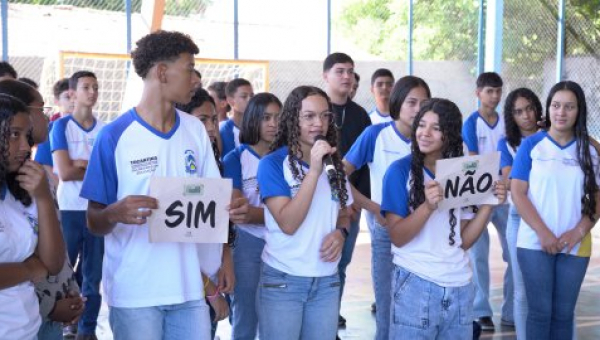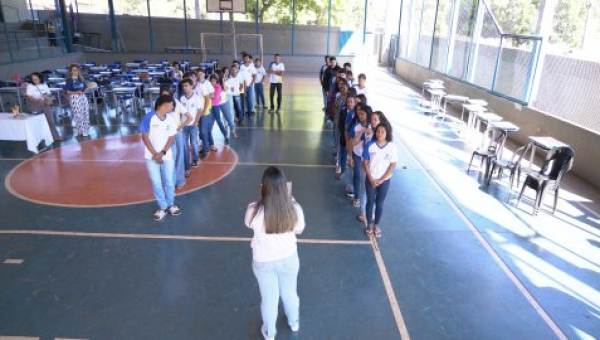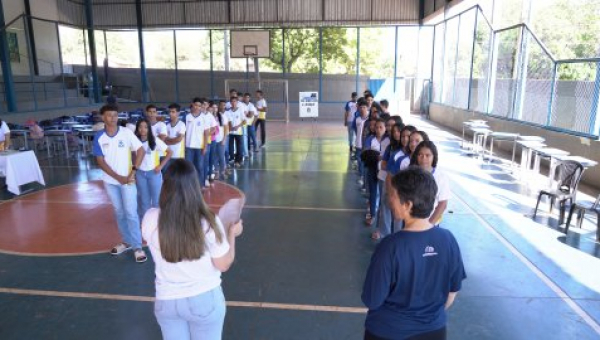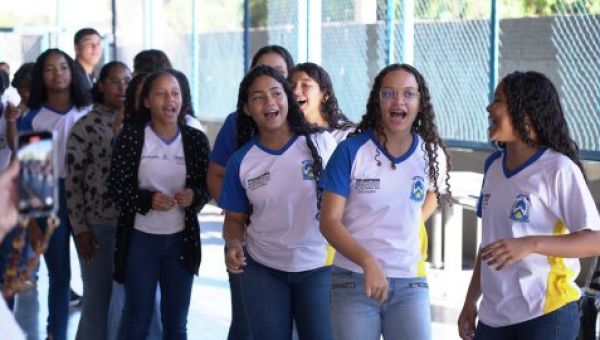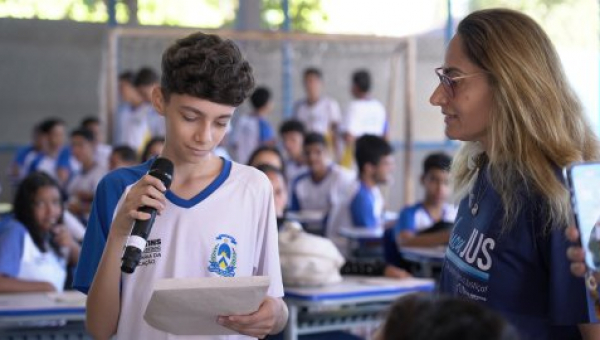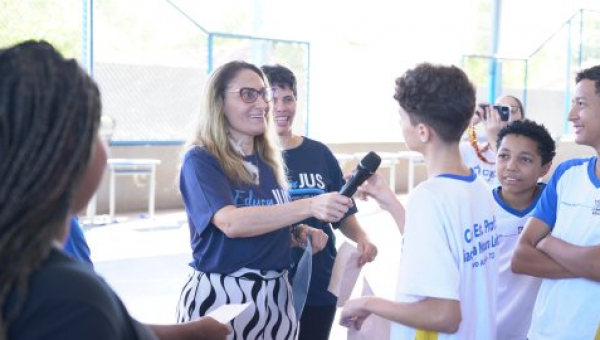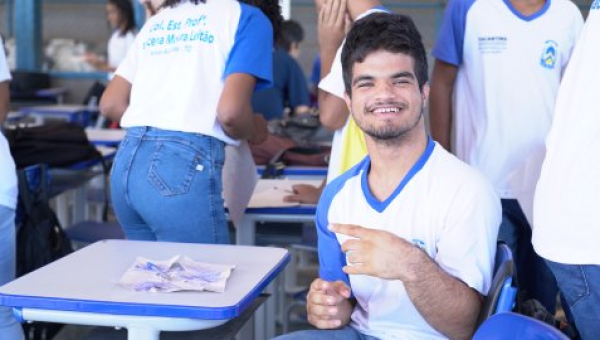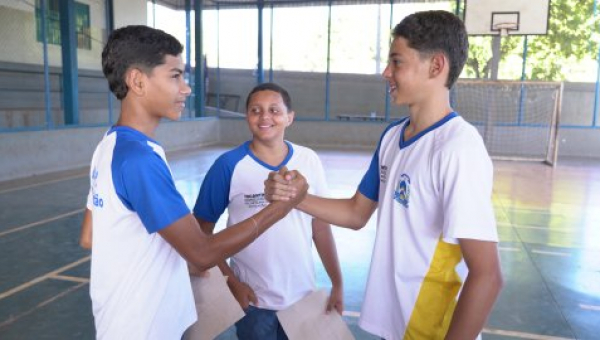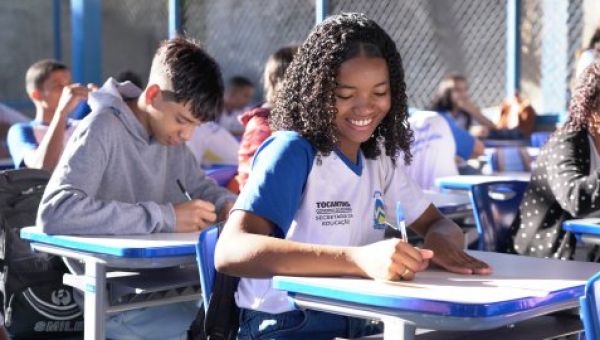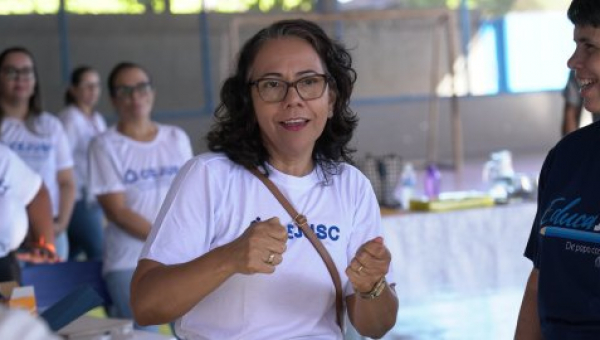
“Do you know what role the Judiciary plays in society? Yes or no?“ This is one of the questions asked during the program: ”EducaJus: chatting with Justice", held last Friday (September 5th) at the Professor Eliacena Moura Leitão State School in the district of Novo Acordo. This is the first school to host the program in 2025.
The initiative of the Judiciary of the state of Tocantins engaged 9th grade classes at the school throughout the day, with games, activities, and lots of interaction with almost 80 students, to demonstrate in practice and in simple, accessible language the basic concepts of citizenship and the rights and duties of citizens based on the Constitution of 1988.
For the creator of the program, Judge Rosa Maria Gazire Rossi, school is sacred ground, where people of different beliefs, tastes, thoughts, and feelings come together, and it is in this environment that respect and tolerance must be built.
“We at EducaJus, based on our Constitution, build citizens who can make a difference tomorrow, whether at school or in society,“ said Judge Rosa Maria Rossi, highlighting the commitment of Eliacena School on achieving ”our goal of further empowering these young people, making them subjects of rights and duties, capable of transforming the local reality for the better, increasingly”.
School principal Wesley Ramos emphasized that the partnership with the Judiciary broadens and strengthens awareness of the students on their individual abilities and what they can achieve, based on the principle that studying is for life.
“This exchange, this partnership with the Judiciary, helps us a lot to bring home the reality that Justice is close to our students, to show them that we, in the countryside, also have the ability to develop ourselves with our determination. We have the potential to achieve our dreams, no matter how big and better they may be,” said the principal.
The program is developed based on the Universal Declaration of Human Rights (UDHR) and aligned with the 2030 Agenda of the UN. EducaJus complies with the Recommendation No. 136 of the National Council of Justice (CNJ) of 2022, which guides courts to promote periodic actions in public educational institutions, disseminating basic notions of citizenship, fundamental rights, organization of powers, and conflict prevention.
Awakening Citizenship
"There wasn't enough time to answer all the questions, but it was worth learning," said Helem Pereira, a 9th grade afternoon student, pointing out that she was unaware of basic rights such as life and liberty.
Fourteen-year-old 9th grade student Celine Rodrigues Alves participated in the morning session. “I came to understand a lot more today, such as the rights of women and indigenous peoples. “In the end, we have to respect others.”
Fourteen-year-old Dayvison Sobrinho Carvalho is in the 9th grade afternoon session. Alongside his classmates, he was able to deepen his knowledge of human rights. “We only heard that human rights were a good thing, but we had no idea what they meant. Today, we understood that everyone should have access to the same rights, women, black people, gay people, trans people, everyone has equal rights,” he said.
About EducaJus
Launched in May of 2023, the Program on Socio-Legal Education for the Promotion of Conscious (De)Judicialization of Public School Students of the Judiciary of the state of Tocantins, “EducaJus Chatting with Justice”, operates on an itinerant basis in the districts of the State, bringing knowledge, dialogue, and practices of citizen justice to public school students.
"It is the Judiciary leaving the Forum, the Court of Justice, and coming to the school. We seek to bring Justice closer to society, meeting the macro challenge of the Judiciary of the state of Tocantins, maintaining humility, horizontality, speaking in simple language, dialoguing, feeling, seeing what these students have as a perspective for the future, what bothers them in the present, what has bothered them in the past, and, in the future, what they can fight for to have a more dignified and fair life," explained the judge managing the program, Rosa Maria Gazire Rossi.
EducaJus has already visited schools in the County of Guaraí and its districts, promoting activities, discussion groups, and reflections on topics such as emotional intelligence, nonviolent communication, the right to speak, active listening, confidentiality, and nonjudgment.
Stages
The Truth Game is part of the “Live and Feel” stage of the program and it aims to get to know the students, addressing questions related to the Statute of Children and Adolescents (ECA); BULLYING; human rights; wisdom of the indigenous peoples; consumer rights; domestic violence; cell phone use at school, among others.
The second stage, “Knowing,” is scheduled for September 29th and 30th and it aims to share knowledge based on the feelings and observations shared in the first stage. In this phase, lectures are held with magistrates and guests, experiences with civil servers of the Judiciary, and Restorative Justice circles.
The third stage, scheduled to take place on November 3rd, “Socialize,” has as one of its main objectives the integration of experiences with the school community through the signing of a cooperation agreement between the school and partner institutions.
Team
According to the Ordinance No. 2,605, dated July 28th, 2025, the Program on Socio-Legal Education for the Promotion of Conscious (De)Judicialization of Public School Students of the Judiciary of the state of Tocantins, “EducaJus Chatting with Justice”, has a Working Group for its implementation, coordinated by managing Judge Rosa Maria Rodrigues Gazire Rossi.
For the dynamics in the district of Novo Acordo, the magistrate was accompanied by the facilitators: social worker of GGEM (Management Group for Multidisciplinary Teams within the Judiciary of the state of Tocantins) Jórcia Castro; administrative advisor of Nupemec (Permanent Center for Consensual Methods of Conflict Resolution) Lorena Gutierrez; employee of Cocid (Citizenship Coordination) Luana Paniago; GGEM-accredited Luana Ribeiro and Lorena; Nupemec-accredited Pedro Araújo; judicial technician of the TJTO Luciane Prado; and press advisor Vilmara Bianchi.
